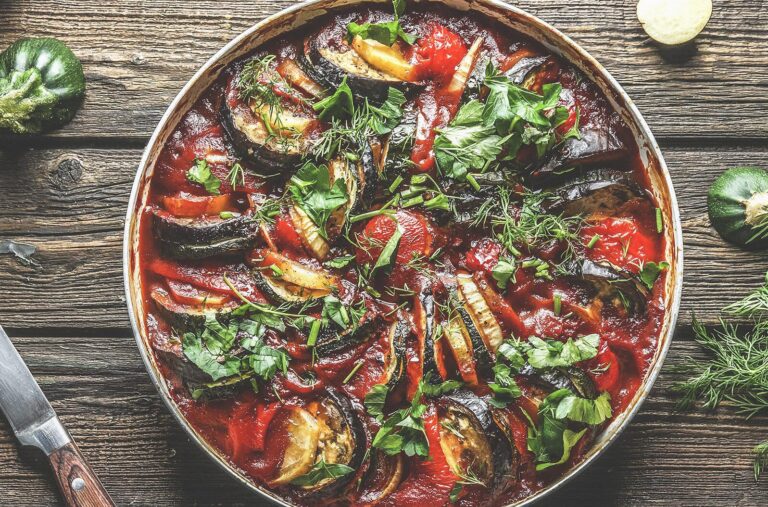Introduction
In the heart of France, a quiet revolution is brewing, one that honors tradition while tackling the modern challenges of globalization and industrialization. As the nation grapples with the pressures of mass production and changing consumer habits, a passionate movement emerges under the mantra “Defend the product!” This initiative aims to preserve the rich tapestry of France’s artisan food culture, safeguarding centuries-old techniques and local ingredients from the encroachment of large-scale agriculture and homogenized offerings. This article explores the dedicated efforts of chefs, farmers, and craftsmen across the country, shedding light on how they strive to keep their culinary heritage vibrant and relevant in todayŌĆÖs fast-paced world.
Defending Culinary Heritage in France
In a country renowned for its culinary excellence, the preservation of traditional food practices has become a rallying cry among artisans and chefs alike. The phrase “Defend the product!” echoes through farmersŌĆÖ markets, artisanal bakeries, and vineyards, capturing the essence of a movement dedicated to safeguarding France’s gastronomic heritage. As industrialization threatens the authenticity of food, local producers are banding together, emphasizing the importance of regional specialties like cheese, cured meats, and breads. This grassroots effort not only champions the flavors of local ingredients but also promotes sustainable practices that keep communities connected to their cultural roots.
Support for these artisan food traditions is bolstered by initiatives such as Appellations dŌĆÖOrigine Contr├┤l├®e (AOC), which protect the names of specific products tied to their geographical origins. Regions like Champagne, Roquefort, and Cantal pride themselves on the methodologies that define their unique tastes and expertise. In addition to regulatory protections, educational programs aim to raise awareness among consumers about the value of artisanal creations. The local dining scene reflects this commitment, with restaurants pledging to source ingredients from nearby producers, thus closing the gap between the farm and the table.
The Role of Artisanal Producers in Local Economies
Artisanal producers are pivotal in nurturing the soul of local economies, acting as both custodians of tradition and catalysts for innovation. These local craftsmen and craftswomen not only create distinctive, high-quality products but also foster community identity through their work. By emphasizing regional ingredients and traditional techniques, they contribute to the preservation of culinary heritage while simultaneously engaging with contemporary tastes. This symbiotic relationship between community and producer encourages sustainable practices and supports biodiversity, which resonates with consumers increasingly concerned about the origins of their food.
The economic impact of artisan producers extends beyond immediate sales; they invigorate local markets and create employment opportunities. Key benefits include:
- Boosting local agriculture through partnerships with farmers.
- Increasing tourism as visitors seek authentic culinary experiences.
- Promoting local craftsmanship that attracts investment and fosters entrepreneurship.
In many regions, artisanal food production also stimulates secondary industries, enhancing the overall economic resilience of the community. These producers are not merely businesses; they embody a rich tapestry of culture, tradition, and innovation, making them invaluable to the local landscape.
Preserving Tradition Through Education and Community Engagement
The French commitment to their artisan food culture is fortified through a combination of education and community engagement, creating a rich tapestry of culinary heritage that is both preserved and celebrated. Schools and rural training programs actively promote traditional techniques, often inviting local artisans to share their knowledge with students. This hands-on approach enables the younger generations to:
- Understand the importance of sourcing local ingredients.
- Learn traditional cooking methods that have stood the test of time.
- Appreciate the cultural significance behind each dish they create.
Moreover, festivals and community markets serve as vibrant platforms for artisans to showcase their products, fostering relationships between producers and consumers. These events not only highlight the dedication of local craftspeople but also encourage a sense of pride among attendees. Such initiatives ensure that the rich diversity of regional cuisines remains a key element of French identity:
| Region | Signature Product | Artisan Technique |
|---|---|---|
| Brittany | Galettes | Hand-rolled dough |
| Provence | Olive Oil | Cold pressing |
| Normandy | Camembert | Traditional fermentation |
Promoting Sustainable Practices in Artisan Food Production
In an era where mass production often sidelines quality for quantity, French artisans are fiercely committed to preserving the intricate practices that define their culinary heritage. By embracing traditional methods, these food producers highlight the importance of sustainability, ensuring that their production processes respect both the environment and the community. Key strategies employed by artisans include:
- Locally sourced ingredients: Using regional produce minimizes transportation emissions and supports local farmers.
- Organic farming techniques: Adopting methods that enhance soil health and reduce pesticide use.
- Seasonal production: Aligning production with natural growing cycles to respect biodiversity.
Through these sustainable practices, artisan food producers not only champion quality but also preserve the cultural essence of their regions. The emphasis on traditional craftsmanship fosters a strong connection between the producer and consumer, generating a community that values the integrity of food. A recent survey highlighted the benefits of such practices, showcasing the growing consumer preference for artisan foods over industrial options:
| Consumer Preference | Artisan Foods | Industrial Processed Foods |
|---|---|---|
| Quality over Quantity | 80% | 20% |
| Support for Local Economy | 75% | 25% |
| Environmental Concerns | 70% | 30% |
This shift in consumer behavior reflects a broader societal movement towards sustainability, encouraging artisans to innovate while staying true to their roots. As the French continue to champion their artisan food culture, they set a compelling example for producers worldwide, reinforcing the notion that preserving tradition and prioritizing sustainability can go hand in hand.
Wrapping Up
In an era increasingly dominated by mass production and globalization, France stands as a bastion of artisanal food culture, championing the philosophy of “Defend the product!” Through rigorous protections, community initiatives, and a deep-seated respect for traditional methods, the French are not just preserving their culinary heritage but actively cultivating it for future generations. As local producers, farmers, and consumers unite under this shared commitment, they underscore the critical importance of safeguarding these time-honored practices against the encroachments of industrialization. The vitality of France’s artisan food culture serves as both a testament to its history and a blueprint for other nations grappling with similar challenges. In celebrating and defending their products, the French are not merely keeping a legacy alive; they are shaping a sustainable future that honors the past while embracing the possibilities of tomorrow.




